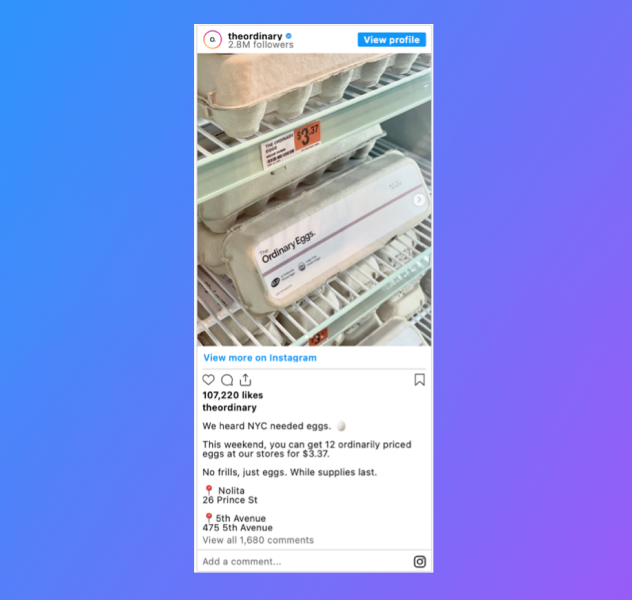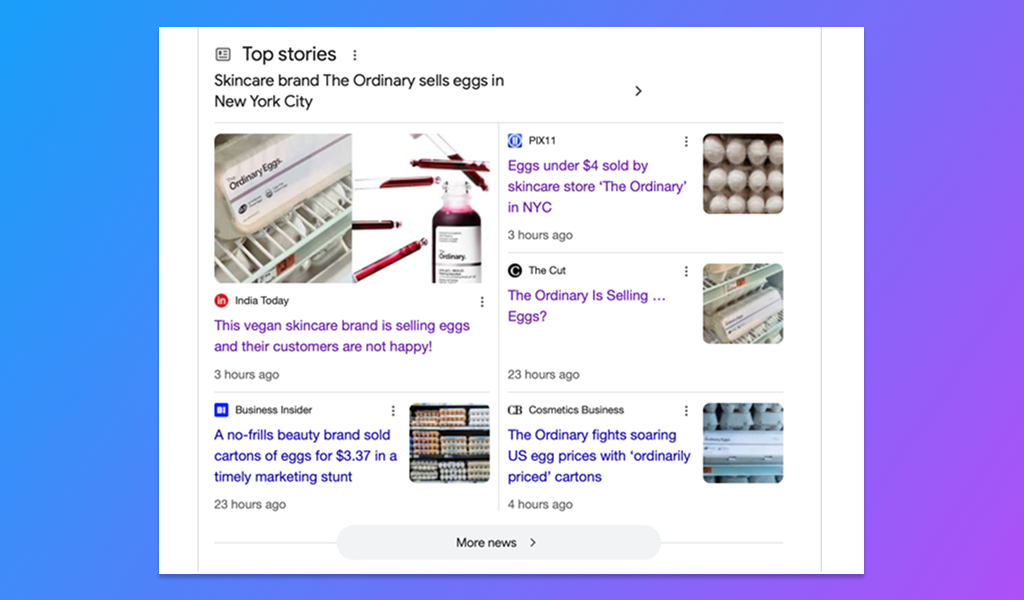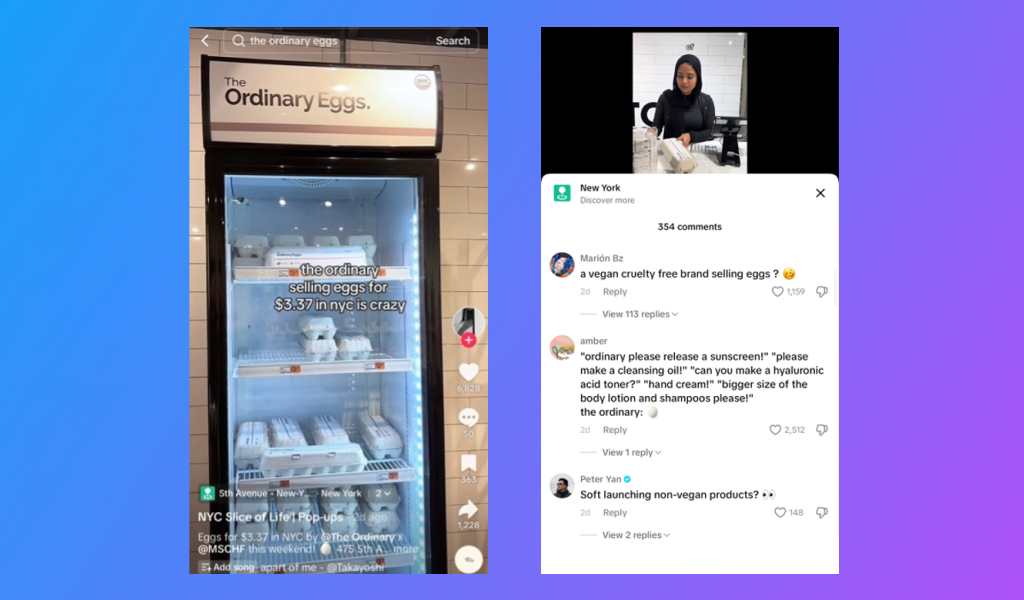
Brands love bold moves—when they work. But when they don’t? They don’t just backfire—they burn equity.
The latest brand to walk this line is The Ordinary, the cult-favorite skincare company known for cutting through industry fluff with affordable, vegan, science-backed products.
This past weekend, they did something… unexpected: they sold eggs.
The Ordinary set up egg displays in two NYC locations, pricing them at $3.37 a dozen—a shot at inflation and a wink at their own brand name. The campaign aimed to position The Ordinary not just as affordable skincare, but as a common-sense, everyday solution across categories. The reaction? A near-perfect split between brilliant and baffling.

Let’s be clear: the stunt worked.
No paid media. No influencer army. Just eggs, buzz, and some cleverly printed labels. The press picked it up. The internet caught fire. Millions now associate The Ordinary with value, even if they’ve never touched a serum.
It was smart. It was scrappy. It was undeniably effective.
But was it… honest?
That’s where things cracked. The Ordinary didn’t just grab attention—they grabbed controversy.
The backlash wasn’t about the execution. It was about the brand behind it.

A brand built on cruelty-free and vegan principles was now—if only for a weekend—selling animal products. Was it satire? Was it performance art? Was it tone-deaf? Depends who you ask.

One X user summed it up:
“The Ordinary selling eggs is like Tesla launching a gas station.”
Another added:
“Cute stunt at the expense of brand integrity. You’ll do anything for noise, huh?”
Scarlett Newman, a journalist, pointed out the campaign’s class disconnect:
“If they really wanted to help, they’d put these in low-income neighborhoods. Not Nolita.”
Even marketers questioned the intent.
Chris Kubby, CEO of Kubbco, called it out plainly:
“This wasn’t about affordability. It wasn’t about food insecurity. It was about free PR. And it came at the cost of the brand’s own ethics.”
Others echoed a similar sentiment: clever stunt, wrong player.
Because here’s the uncomfortable truth: If Spirit Airlines or Skechers had done this, it probably would’ve landed clean. They don’t trade on ethics. The Ordinary does. And in a values-led era of marketing, that matters.
This wasn’t just a cute idea. It was a deliberate choice to spotlight one brand pillar—affordability—by silencing another—animal welfare. The result? A sharp, shiny moment with a dull aftertaste.
This isn’t about hating the game. It’s about questioning the play.
The stunt worked. Full stop. But the cost of clever is credibility. And while The Ordinary gained mass attention, they may have alienated the very customers who bought into their values. You know, the ones who made them a brand worth noticing in the first place.
To quote Kubby again:
“You can’t market ethics one day and toss them out the next for shock value. That’s not disruption. That’s distraction.”
This campaign wasn’t a misstep in execution—it was a contradiction in identity. And contradictions confuse customers.
So, what’s the takeaway?
Every marketer is trying to break through. Every brand wants a moment. But if the cost of the moment is the erosion of your foundation, is it worth it?
The Ordinary played the game. And played it well. But in scoring headlines and new eyeballs, they might’ve lost part of their core.
In a time when brand trust is the new currency, selling eggs for clicks might’ve been too expensive after all.






